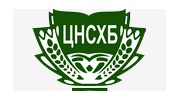Russia’s food security under the crisis of 2020– 2021: Objective and subjective dimensions
Sep 12 2022Shagaida N. I., Trotsuk I. V. Russia’s food security under the crisis of 2020–2021: Objective and subjective dimensions // The Russian Peasant Studies. 2022. V.7. №2. P. 93-121.
DOI: 10.22394/2500-1809-2022-7-2-93-121
Annotation
The article presents the results of the assessment of Russia’s food security in 2020–2021 based on the available statistical data and sociological monitoring of the population’s ‘food well-being’ conducted since 2015 by the Center for Agro-Food Policy of the RANEPA. The authors believe that the pandemic risks for Russian agriculture were limited, and agricultural production ensured a high level of food self-sufficiency. Although the physical access to food remained at the same level, the economic access has deteriorated; however, Russian families managed to keep their usual diet by redirecting the money saved due to the pandemic restrictions to food consumption. Rising food prices have become the most important problem under the crisis, and to solve it, the Russian government has used a wide range of measures — from reducing duties on food imports and temporary bans on food exports to setting marginal retail prices for certain food products. The sociological assessment of the population’s ‘food well-being’ (the all-Russian telephone survey) showed that the families’ requirements to the access to food are rather modest due to the huge credit of patience and sustainable practices of adaptation to the objective social-economic restrictions. Given the achieved indicators of Russia’s food self-sufficiency according to the Food Security Doctrine, the state should shift its focus from food self-sufficiency (and increasing exports) to the economic access of the population to food.
Keywords
Food security, food well-being, self-sufficiency, economic and physical access to food, pandemic, statistical and sociological data.
About the authors
Shagaida Natalia I., DSc (Economics), Head of the Center for Agro-Food Policy, Russian Presidential Academy of National Economy and Public Administration. 119571, Moscow, Vernadskogo Prosp, 82.
E-mail: This email address is being protected from spambots. You need JavaScript enabled to view it.
Trotsuk Irina V., DSc (Sociology), Professor, Sociology Chair, RUDN University; Senior Researcher, Center for Agrarian Studies, Russian Presidential Academy of National Economy and Public Administration. 119571, Moscow, Vernadskogo Prosp, 82.
E-mail: This email address is being protected from spambots. You need JavaScript enabled to view it.
Kisliy O. A., Isaeva M. A. The position of labor migrants in agriculture under the pandemic // The Russian Peasant Studies. 2021. V.6. №4. P. 125-135.
DOI: 10.22394/2500-1809-2021-6-4-125-135
Annotation
Many countries face a shortage of labor resources and try to provide agricultural employment by attracting labor migrants from abroad. A ‘review’ of the role of labor migration in the development of agriculture requires a thorough analysis of migration statistics, since illegal migration is widespread, and there are no statistical records on seasonal workers. Therefore, migrants seem to make up an insignificant part of those employed in agriculture. However, the current global situation —the coronavirus pandemic—revealed a shortage of workplaces for labor migrants. In the pre-pandemic period, millions of foreign workers entered the Russian Federation every year. Under the pandemic, to attract migrants to agriculture and food production system of other countries became difficult, which highlighted their important role in the economic development. Therefore, the impact of the pandemic on the foreign labor market entered the agenda of international politics and measures to combat the covid-19 that limited migration, thus, determining a shortage of workers in agriculture and the underestimation of their contribution to national economies of other countries.
Keywords
Migration processes, migration policy, pandemic, covid-19, agriculture, national economy, labor migrants, foreign labor force, labor migration.
About the authors
Kisliy Oleg A., PhD (Pedagogy), Assistant Professor, Russian Presidential Academy of National Economy and Public Administration; Prosp. Vernadskogo, 82 Moscow, 119571.
E-mail: This email address is being protected from spambots. You need JavaScript enabled to view it.
Isaeva Maria A., Officer, Division for Control in the Field of Migration, Main Directorate, Russian Ministry of Internal Affairs, Moscow 115035, Sadovnicheskaya St., 63, bldg. 7.
E-mail: This email address is being protected from spambots. You need JavaScript enabled to view it.























